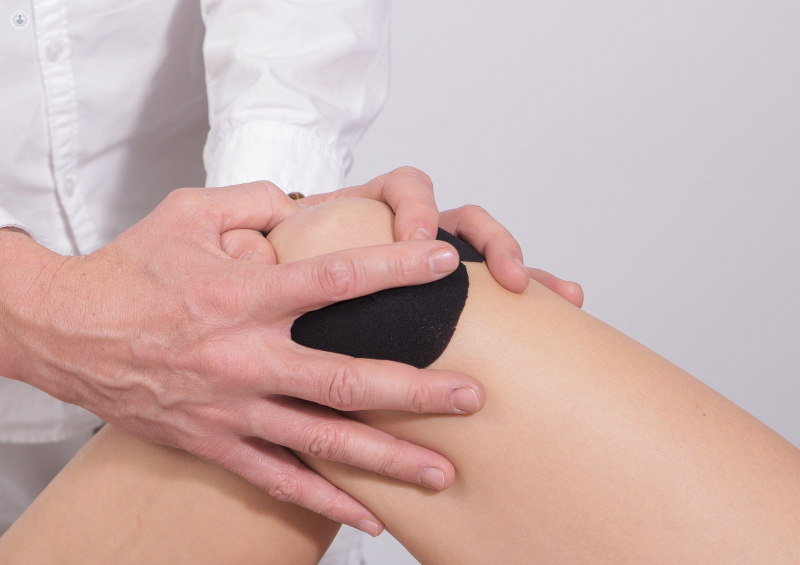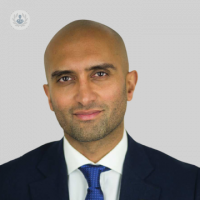Partial knee replacement: benefits, success rate and recovery time
Written by:Whilst in the past full knee replacements were recommended for fixing the majority of knee problems, partial knee replacements have emerged as a less drastic and more comfortable option. We recently spoke to Mr Bilal M. Barkatali, a leading specialist knee surgeon, about this procedure and why so many patients are opting to have it done.

What is involved in a partial knee replacement and why would someone require one?
A partial knee replacement is an operation where only part of the knee joint is replaced. The reason for this is that in a lot of cases, only a section of the knee joint is worn out, which allows the surgeon to focus only on the arthritic part of the knee.
The knee can be separated into three compartments: medial (inside of the knee), lateral (outside of the knee) and patellofemoral (the area behind the kneecap). Osteoarthritis can occur in any of these compartments, but quite often only one compartment is affected.
Partial knee replacements are much less invasive than full knee replacements and most of the patient’s knee is preserved, which results in a more natural feel to the joint and a smoother recovery process.
What are the main benefits of undergoing a partial knee replacement?
There are many benefits to having a partial knee replacement. The main positives include the following:
- it is less invasive than a total knee replacement
- the majority of the patient’s knee is preserved, including all of the (unaffected) ligaments
- the patient remains eligible to have a full knee replacement should they require it in the future
Are there any risks involved in partial knee replacement surgery, both during the procedure and afterwards?
The risks involved in a partial knee replacement are the same as any other surgical procedure of the knee. There are general risks such as infection, bleeding, nerve or blood vessel damage, pain, loosening of prothesis and pain, all of which can lead to further surgery. However, the chances of such occurrences are much lower in a partial knee replacement as it is a smaller operation.
The main risk specifically associated with a partial knee replacement is loosening of the prothesis which can make it necessary to perform a revision or a full knee replacement. While this can be unpredictable, we aim for a good result lasting at least 10 years.
What is the recovery time for partial knee replacement?
The recovery time is generally quicker than that for a full knee replacement. The operation can usually be performed as a day-case procedure, with the patient coming in first thing in the morning and going home later in the day, as opposed to with a full knee replacement, where overnight stay for one or two nights is usually required.
The clips or stitches used to close the wound are usually removed two weeks after the operation, with the patient able to fully put weight straight away after the operation. The overall recovery usually takes between six to 12 weeks after the operation.
What is the success rate of a partial knee replacement?
The success rate of a partial knee operation depends on patient selection and ensuring that it is the right operation for the right person, at the right time. If the appropriate criteria are met and the operation is performed well, there is a high chance of minimal pain and good function of the joint for more than 10 years. The rest of the knee which has been preserved can wear out and become arthritic, which can lead to conversion from a partial knee replacement, but we would hope that this would not be within 10 years.
If you are considering undergoing a partial knee replacement, you can consult directly with highly esteemed and expert leading knee surgeon, Mr Bilal M. Barkatali via his Top Doctors profile.


